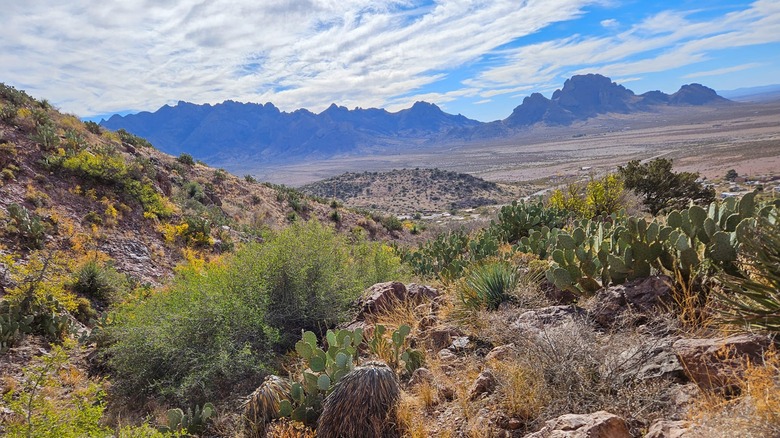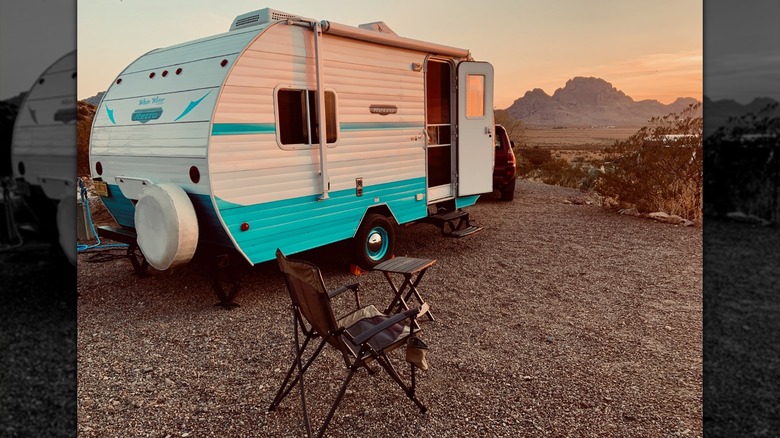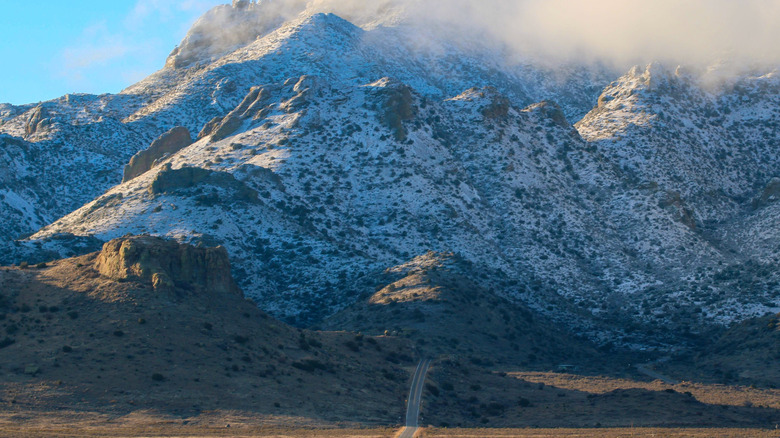This Serene State Park Nestled In New Mexico's Mountains Has Peaceful Campsites And Stunning Trails
With a name like Rockhound, New Mexico's southern state park boasts exactly what you'd expect to find: rocks, rocks, and more rocks. In fact, this serene stretch of wilderness has so many rocks that you're allowed to take some home. From crystal-lined geodes and colorful jasper to the popcorn-like perlite, a type of glassy volcanic stone, visitors can pocket up to 15 pounds of geological wonders, including quartz crystals and other minerals.
Collecting rocks is a major no-no in the vast majority of state parks and national parks around the country. Thankfully, for the rock hobbyists of the world, Rockhound State Park is a rare exception. The rugged New Mexico oasis became the first in the nation to permit rock hunting when it was founded in 1966. A few state parks have followed suit since then, including several in Michigan. You can also pan for gold at the South Yuba River, California's iconic state park outside of Sacramento.
Laced with stunning hiking trails, Rockhound State Park lies just outside of the city of Deming in the Little Florida Mountains. It's a bit off the beaten path, though a few airports are within driving distance, such as the local Grant County Airport and Texas' El Paso International Airport (ELP). There are also more than a dozen hotels and motels to choose from in nearby Deming. Or, grab your camping gear for a comfortable night outdoors and sleep at Rockhound State Park's peaceful campground.
Set up camp in Rockhound State Park
There's no denying that national parks offer some of the best camping in America, but don't sleep on state parks. Actually, scratch that — please do. Rockhound State Park is home to 29 developed campsites, equipped with picnic tables, grills, and shade shelters to help you brave the elements.
"The location is snug into the mountains, serene, earthly and ahhhh! We have been camping here all week, and the facilities, staff, and overall care are commendable A+," one former camper raved on Tripadvisor. "My son loves Geodes and rock hunting so we made this part of our RV vacation," another shared. "It was awesome, we got the perfect RV spot right on the side of the mountain and the whole place was so nice and serene."
About two dozen of the sites have electric hookups, which will come in handy if you plan on parking your rig. There are also comfort stations decked out with restrooms and showers. You can reserve your campsite online, with nightly rates between $15 and $20, excluding taxes and other fees. Keep in mind that there's also a day-use fee to access the park, which is $5 for local New Mexico residents and $10 for out-of-state visitors, at the time of writing.
Hike your way through Rockhound State Park
Explore Rockhound State Park's 1,100 sprawling acres by venturing out onto the handful of trails. Trek the moderately challenging 1.6-mile Thunder Egg Trail, aptly named for the park's prized treasures. Thunder eggs were formed from ancient volcanic ash and often reveal colorful swirls of quartz or agate inside when cracked open. They can get pretty big — ranging from under an inch or over 5 feet in diameter — but you'll have to do some digging to find them.
Rock hunting aside, the Thunder Egg Trail is also a popular path for birding. More than 100 species of birds have been observed in the park, from lemon-yellow plumed western kingbirds to red-winged blackbirds. Consider this your friendly reminder to bring along a pair of binoculars. You may see a plethora of other wildlife along the way, such as deer, antelope, prairie dogs, rabbits, and badgers. Be sure to keep your eyes peeled for snakes and coyotes, too.
The Spring Canyon area of the Little Florida Mountains is another beloved hiking hot spot, which you can explore via the 1.2-mile Spring Canyon Trail. Or, meander along the nearly 2-mile Lover's Leap Canyon Trail. On that note, be prepared to do some uphill climbing while you hike. The park's relatively lofty elevation — favored by mountain lions and desert bighorn sheep — ranges between 4,520 and 5,400 feet. Appreciate the desert scenery as you wander along, namely the flowering yucca and prickly pear cactus. Don't forget to check out the native garden, as well as the exhibits in the visitor center.


